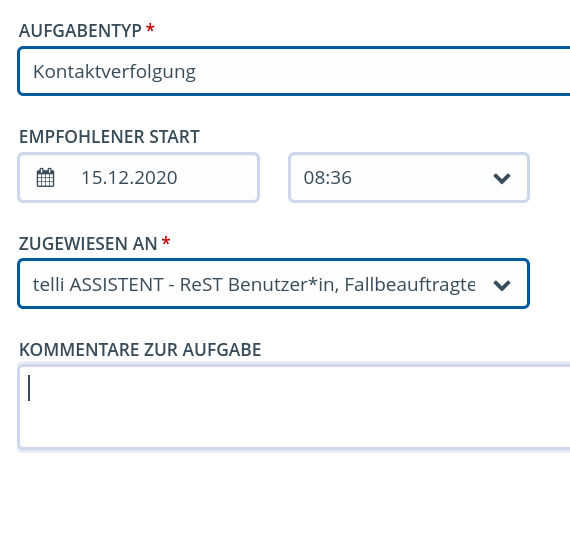In November 2020, German health departments struggled to keep up with the spreading COVID-19 pandemic. They were expected to call every infected person, mandate quarantine and ask whom they met in the infectious period. Then every such contact person was called as well to ask about details of the contact and decide about quarantine. The Bundeswehr helped calling but the whole process was so slow that some people were called weeks after their critical contact.
Details about infections were collected centrally with a software called SurvNet , a tool to forward all legally relevant data to the Robert Koch Institut (RKI), not limited to COVID-19. The tool isn’t designed to organize a pandemic, so it was announced that from early 2021, the pandemic management system SORMAS shall be used in parallel — well, SORMAS has a REST API, let’s see what we can do.
Our approach to help
The majority of German citizens use the internet every day, so we created a digital assistant that can take over the communication like so:
- Staff at the health department (Staff) enters details of the infected person as received from the testing facilities. This usually includes a phone number or email address.
- Staff creates a new task or ticket in SORMAS like they would do it anyways to keep track of the progress and manage delegation. But instead of delegating the task to a human, they choose our bot, Telli, from the dropdown list.
- Telli then sends an email or calls the infected persons and ask them to provide the contacts they had on a website.
- Once entered, telli writes back the data to SORMAS and closes the task.

Minimum setup, maximum privacy
A nice property of that approach is that it works without any software installation at the health department – as long as they use SORMAS. Departments just have to create a new SORMAS REST user with appropriate permissions for us, tell us the URL of their SORMAS instance, and Telli is ready to use.
Further, the data is only collected from confirmed cases and their contact persons. No data is collected in advance, providing a high level of privacy which can be crucial for success in Germany. Additionally, German and certified providers of third party services were found such that no data left the EU.
Telling the departments
The MVP was finished in January 2021, with an event-based approach to be ready for future features. We then approached all health departments in Germany. Some were interested, and a few worked with us to adapt the software to their specific needs. We had the first SORMAS production instances connected to our system in February. For authorities without access to SORMAS, we created SORMAS test instances. Telli was also prepared to provide automation for other common SORMAS tasks.
Waiting forever
There was considerable interest in our solution, but the health authorities lacked a fast and pragmatic basis for decision-making. We gave up when we realized that SORMAS would not be broadly used until the interface to SurvNet was finalized, which kept changing.